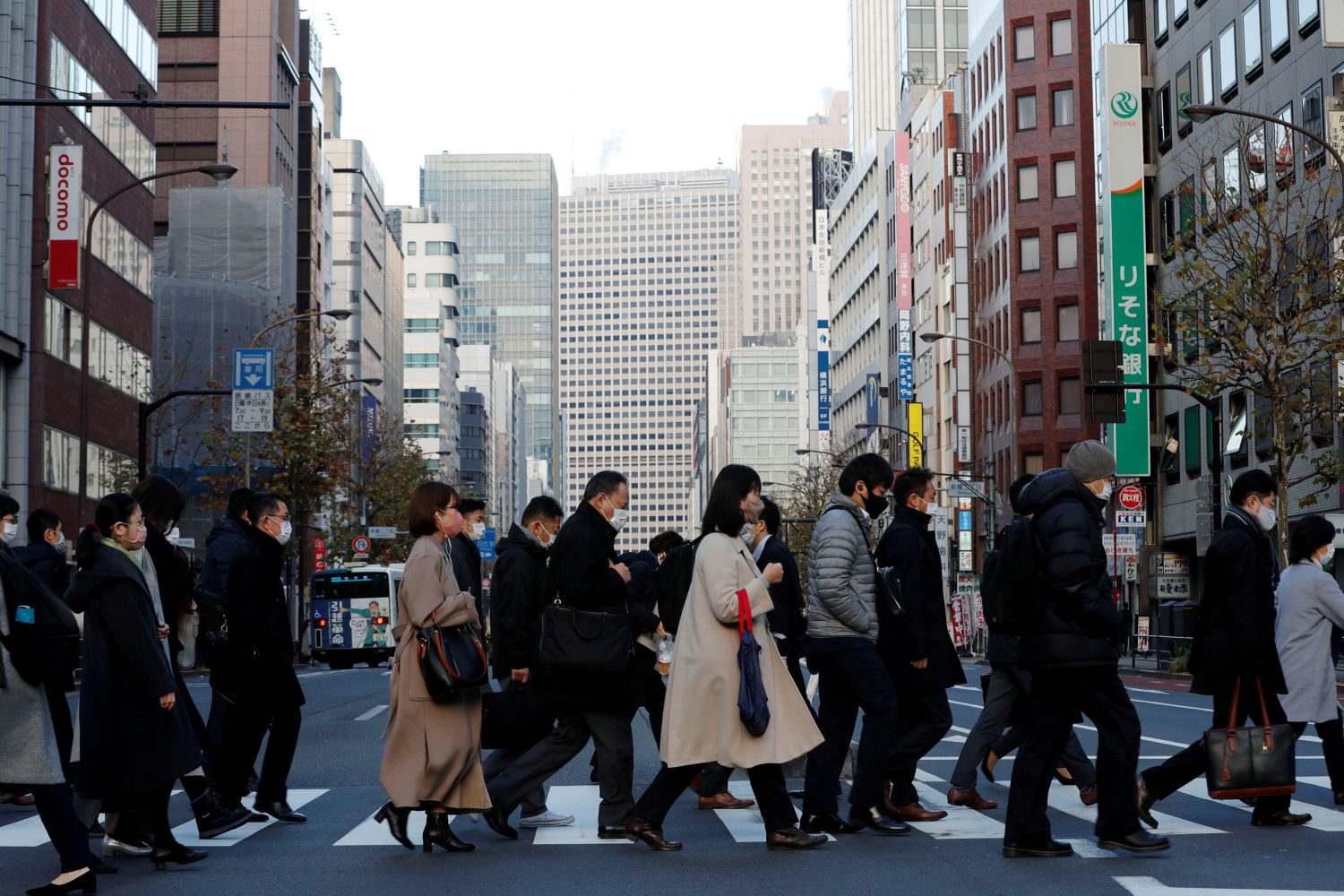(ATF) Japan’s economy grew at a slower 3% in the October-December quarter, government data showed on February 15, as the country recorded a relatively strong comeback from the Covid-19 pandemic. It is now cleaning up after a weekend earthquake.
The economy shrank 4.8% in 2020 in its first annual contraction since 2009. Output in Japan grew by 3% in the fourth quarter of 2020 over the previous three-month period.
Real gross domestic product in the final quarter of the year totalled ¥542.7 trillion, just 1% lower than the ¥548.8 trillion recorded in the final quarter of 2019 on a seasonally adjusted basis.
The Nikkei 225 breached the 30,000-point mark for the first time since 1990 on Monday as it rose 1.2% on the upbeat economic data, while the benchmark Topix index edged up 0.7%.
The figures reflect a period before Japan went back to a state of emergency in January, however, so output is likely to fall again this quarter. Consumption rose by 2.2% in the fourth quarter, business investment rose 4.5% and exports surged 11.1%.
“The strong rise in GDP in the fourth quarter left output just 0.5% below pre-virus levels,” said Marcel Thieliant, senior Japan economist at Capital Economics. “I think that output will be broadly flat in the first quarter of 2021 and rise more strongly this year than almost anyone anticipates,” he added.
OLYMPIC CONFUSION
A Barclays report on February 15 said Japan’s economic outlook depends on those of its major trading partners, especially the US and China, and whether a decline in government approval ratings increases pressure for populist fiscal measures.
Analysts Tetsufumi Yamakawa and Kazuma Maeda said the trend in excess savings, such as whether stability in employment and income environment spurs a decline in the savings rate, was also critical.
The economic data offers some hope in a grim week as an earthquake struck near Fukushima – where a devastating temblor and tsunami occurred a decade ago – and the delayed Tokyo Olympics were plunged into fresh chaos by the resignation of the head of the organising committee.
The 7.3 magnitude quake struck shortly before midnight on February 13 and cracked walls, shattered windows and set off a landslide in Fukushima, the area closest to the epicentre. More than 100 people were injured.
Olympic organisers could choose their new president as early as this week after former chief Yoshiro Mori resigned over sexist remarks that provoked a global outcry.
Mori, an 83-year-old former prime minister, resigned on February 12 after sparking an outcry this month when he told an Olympic committee meeting that women talked too much. He had initially refused to step down.
VACCINATION MOVE
One bright spot was the announcement that Japan would start inoculations against Covid-19 on Wednesday after finally approving the Pfizer vaccine over the weekend.
Medical personnel will receive the first jabs, followed by the elderly. Local governments will send out vouchers to each age group as they become eligible, and then they will make their own appointments with clinics assigned the vaccine.
Japan’s vaccination campaign is about two months behind other countries because of the time needed to complete local clinical studies, which check that vaccines produce a similar level of antibodies when used in Japan.
AstraZeneca expects to complete its filing with the Japanese regulators by mid-March, but Moderna only began its local study recently, and it will be several months before it can file for approval.
With reporting by Agence France-Presse and Reuters
























